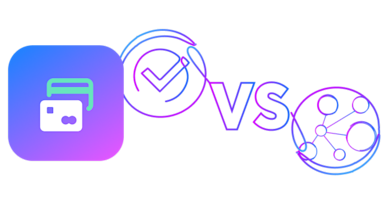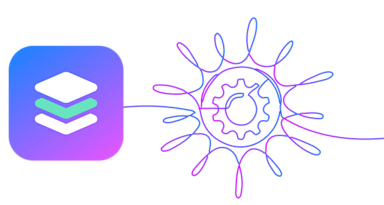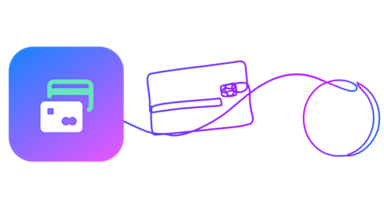Agentic payments are quickly becoming a transformative force in finance and technology. As AI-driven tools evolve from passive assistants to autonomous agents, the concept of agentic payments, where AI can initiate and execute financial transactions, is rapidly gaining serious traction.
According to recent forecasts, spending on agentic AI could reach $155 billion by 2030. In the financial sector alone, agentic payments of approximately $250 billion in payments could be disrupted by agentic payments. With numbers like these, it's no surprise that agentic payments is a key topic in fintech and AI circles.
But there are some questions, including:
- What are agentic payments?
- How do agentic payments work?
- What are the benefits of agentic payments?
In this post, we answer all your questions, providing clear, actionable insight into one of the most exciting frontiers in financial technology.
What are agentic payments?
An agentic payment refers to a payment initiated and executed autonomously by an AI agent, often without direct human intervention at the point of checkout online. In agentic payments, the agent is authorized to execute the transaction.
Think of an agent as letting AI systems and digital agents initiate and execute payments autonomously with no human in the loop.
AI Agents can also make agentic payments, not just one-time, but can execute recurring payments. Unlike tools like autopay and scheduled payments that automate when money moves, agentic payments empower AI to decide if, when, and how to move money, offering a new level of intelligence and automation in financial systems.

- Autonomous Decision-Making: The agent evaluates conditions and acts without human intervention, such as deciding when and how much to pay based on evolving context.
- Bounded Financial Authority: Agents operate within predefined financial limits and constraints to ensure safety, compliance, and user control.
- Rules-Based or ML-Driven Logic: Some agents follow strict business logic, while others leverage machine learning to adapt and optimize decisions over time.
- Real-Time Execution: Payments are made on-demand, instantly responding to external events, contract terms, or system inputs.

How do agentic payments work?
Since agentic payments operate through autonomous AI agents that are empowered to make financial decisions and execute transactions without direct human input, these agents follow a structured, rule-based or machine-learning-driven process to manage money in real time.
Here's a step-by-step look at how agentic payments work:

Step 1: Agent initialization
The process begins when an AI agent is created and assigned a specific goal or task, such as paying invoices, buying an item, managing subscriptions, or executing smart contract obligations.
- Set up via an API, platform, or smart contract
- Linked to a payment source (e.g., bank account, digital wallet, crypto wallet)
- Scoped with access limits, rules, and conditions
Step 2: Context gathering and monitoring
The agent continuously monitors relevant data and signals from its environment.
- Pulls in real-time inputs (e.g., account balances, contract status, pricing)
- Monitors business logic, usage metrics, or workflow status
- May integrate with ERP systems, IoT devices, or webhooks
Step 3: Decision-making
Using either rules-based logic or machine learning, the agent determines whether a payment should be made.
- If X condition is met, trigger Y payment
- May evaluate risk, compliance constraints, or user preferences
- Supports reasoning based on natural language intent, APIs, or models
Step 4: Payment execution
Once a decision is made, the agent initiates and completes the payment.
- Uses connected payment rails (e.g., ACH, card, RTP, crypto, APIs)
- Can handle one-time, recurring, or multi-party payouts
- Supports receipts, error handling, and reconciliation steps
Step 5: Logging, auditing & compliance
Every action is logged for traceability and oversight.
- Detailed audit trails with timestamps and data inputs
- Compliance checks like KYC/AML may be built into the workflow
- Enables user overrides, alerts, or post-payment reviews
Let's take a look at some use cases so you can understand how an agentic payment works in the real world.
Curious to learn more about agent-assisted payments? Check out our recent blog from VGS's CTO on the current and future state of agentic payments
What are some use case examples of agentic payments?

1
Consumers: Smart AI Assistants for Personal Finance
Agentic payments are enabling AI-powered personal finance assistants that go beyond reminders or autopay.
These agents can:
- Pay for one-time e-commerce purchases
- Automatically pay utility bills when funds are available
- Cancel or renegotiate subscriptions based on usage patterns
- Adjust budgeting categories in real time
- Move money across savings, investments, or debt repayment accounts
Example: An AI agent detects unused streaming subscriptions and cancels them, reallocating that money to a high-yield savings account — all autonomously.

2
Businesses: autonomous B2B payments and treasury automation
In enterprise settings, agentic payments streamline finance operations by reducing human intervention in high-volume, logic-driven workflows.
Use cases include:
- Automated invoice approval and payment upon delivery confirmation
- Treasury agents that rebalance funds across accounts for optimal yield or risk
- Contract-based disbursements triggered by milestone completions
Example: A company configures an AI agent to review incoming invoices, verify against purchase orders, and initiate payments once internal policy thresholds are met.

3
IoT & Mobility: machine-to-machine payments
Agentic payments are powering the future of Internet of Things (IoT) commerce, where connected devices pay each other without human oversight.
Common applications:
- EVs paying charging stations automatically
- Smart appliances ordering and paying for replenishments
- Drones or autonomous vehicles negotiating and paying for access or tolls
Example: An electric vehicle detects low battery, finds the nearest station, and pays for a charge session — all through an embedded agent.

4
Decentralized Finance: Contracts and Cryto Wallets
In decentralized finance (DeFi), agentic smart contracts and crypto wallets can manage assets, execute trades, and disburse payments based on blockchain conditions.
Use cases include:
- DAO treasury agents executing multi-sig payments
- On-chain agents rebalancing liquidity pools
- NFT royalties paid out automatically based on sales volume
Example: A decentralized insurance protocol uses agents to verify claims and trigger payouts once on-chain oracle data confirms eligibility.
But why even use agentic payments in the real world? There are plenty of benefits.
Key benefits of agentic payments
As AI agents become more capable, agentic payments are redefining the way money moves with speed, intelligence, and autonomy. Whether for consumers, enterprises, or IoT systems, agentic payment infrastructure delivers compelling advantages that traditional systems simply can't match.
Below are the key benefits of agentic payments and why they're gaining traction across industries:
Efficiency: faster workflows, fewer mistakes
Agentic payments streamline financial operations by removing the need for manual oversight at every step. Once agents are configured with logic and limits, they can independently:
- Initiate payments upon condition fulfillment
- Validate transactions in real time
- Reduce delays caused by approval chains or human error
24/7 autonomous operation
Unlike human-driven processes, agentic payment systems operate continuously, with no downtime, breaks, or time zone limitations.
- Payments can be made instantly, even outside business hours
- Ideal for global transactions and just-in-time payment models
- Supports uninterrupted service for high-volume platforms and systems
Result: Time saved, uninterrupted service, and no need to worry about the time in which agentic payments are made.
Scalable microtransactions
Traditional payment infrastructure often struggles with high-frequency, low-value transactions due to processing costs and latency. Agentic payments solve this by:
- Enabling real-time, event-triggered micropayments
- Supporting IoT devices, usage-based pricing, or pay-per-action models
- Handling thousands of small transactions with minimal friction
Smarter financial behavior modeling
Agentic payment systems can learn from patterns and dynamically adjust decisions to optimize outcomes.
- Adapt to user preferences, financial goals, or market conditions
- Predict and preemptively manage recurring expenses or risks
- Leverage machine learning to refine spending, saving, or investing behaviors
But how do you experience these benefits? With tokenization.


Enable agentic payments with tokenization
Security is non-negotiable when implementing agentic payments, especially when autonomous agents are executing real-time financial transactions. That's where tokenization comes in. By using a provider, like VGS, you can empower your agentic systems to operate with full autonomy without ever exposing sensitive payment data.
By combining agentic payment logic with VGS's tokenization, you get the best of both worlds: autonomous, intelligent financial workflows with enterprise-grade security and compliance. Whether you're building AI-driven fintech products or automating B2B payment flows, VGS makes agentic payments safe, scalable, and future-ready.
Learn more about how VGS can unlock agentic payments for your business:
Learn More



